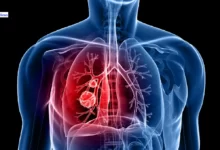High Functioning Anxiety: Is It a Real Thing? Here’s What the Experts Say

Understanding and Managing High Functioning Anxiety
In this comprehensive guide, we will delve into the depths of High Functioning Anxiety, exploring its characteristics, causes, and effective strategies for managing and mitigating its impact.
In today’s fast-paced world, where demands and expectations are constantly on the rise, many individuals experience anxiety to some degree. High functioning anxiety, though not always visibly apparent, can significantly impact one’s daily life and overall well-being.
Defining High Functioning Anxiety
High Functioning Anxiety is a term used to describe individuals who appear to have their lives together externally but internally struggle with persistent anxiety. Unlike traditional anxiety disorders that may manifest visibly, High Functioning Anxiety tends to hide beneath a veneer of competence and success.

Also Read | Understanding the Symptoms of Depression
Characteristics of High Functioning Anxiety
1. Overthinking and Worrying:
Individuals with High Functioning Anxiety often engage in constant overthinking and worrying about various aspects of their lives. This mental chatter can be overwhelming, leading to a perpetual state of stress.
2. Perfectionism:
Striving for perfection is a common trait among those with High Functioning Anxiety. The fear of making mistakes or falling short of expectations can drive individuals to set unrealistically high standards for themselves.
3. Difficulty Relaxing:
Relaxation becomes a challenging task for individuals with High Functioning Anxiety. Even during downtime, the mind may remain preoccupied with concerns and potential stressors.
4. Physical Symptoms:
While not always obvious, High Functioning Anxiety can manifest physically. Symptoms may include muscle tension, headaches, digestive issues, and difficulty sleeping.
Mysteries Behind the Surge in High Functioning Anxiety
In the fast-paced, digitally-driven world we inhabit, an alarming trend has emerged—High Functioning Anxiety is on the rise. This silent epidemic, often concealed behind the veneer of success and productivity, is affecting individuals across the globe. In this article, we’ll delve into the reasons behind the surge in High Functioning Anxiety, exploring the intricate web of societal, technological, and personal factors contributing to its prevalence.
The Landscape of Modern Living
Our contemporary lifestyle is a labyrinth of constant connectivity and relentless demands. The digital age has ushered in an era where information flows ceaselessly, and the expectation for instantaneous responses is the norm. The pressure to excel in both personal and professional spheres has never been more intense.
As we navigate this intricate web, the boundaries between work and personal life blur. The 9-to-5 workday has transformed into an ‘always-on’ culture, leaving individuals grappling with the challenge of disengaging from the constant barrage of emails, messages, and notifications.
Social Media’s Role in the Anxiety Dance
Enter the realm of social media—a double-edged sword that connects us globally while simultaneously fostering feelings of inadequacy and comparison. Platforms like Instagram and Facebook showcase curated versions of people’s lives, often accentuating success and happiness.
The perpetual scrolling through carefully crafted images of achievement can contribute to a distorted reality. High Functioning Anxiety finds fertile ground in the soil of comparison, as individuals feel compelled to meet unrealistic standards set by virtual personas.
Also Read | Unlocking the Radiant Glow: Meditation Benefits for Skin Health
The Perils of Perfectionism
The pursuit of perfection has become an unrelenting force in modern society. Whether in academic achievements, professional endeavors, or personal relationships, the pressure to be flawless is pervasive. High Functioning Anxiety thrives in environments where the quest for perfection is ceaseless.
The fear of failure, often driven by societal expectations, can propel individuals into a relentless cycle of self-doubt and anxiety. The constant need to meet high standards, whether imposed externally or self-inflicted, can be a breeding ground for the silent suffering of High Functioning Anxiety.
The Unseen Impact of Technological Advancements
While technological advancements have undoubtedly transformed the way we live and work, they also come with a price. The ever-accelerating pace of innovation demands rapid adaptation, leaving individuals grappling with constant change.
The fear of obsolescence, coupled with the pressure to stay updated, can trigger anxiety in high-functioning individuals. The perpetual need to acquire new skills and stay ahead in a competitive landscape can create a chronic state of apprehension, contributing to the surge in anxiety disorders.
Economic Uncertainty and Job Insecurity
In an era marked by economic volatility and global uncertainties, job security is a rare commodity. The precarious nature of employment in many industries exacerbates the anxiety levels of high-functioning individuals.
The fear of sudden job loss, coupled with the relentless pursuit of career advancement, can lead to a state of perpetual alertness. High Functioning Anxiety, in this context, becomes a coping mechanism for navigating the uncertain waters of the job market.
The Loneliness Epidemic
Paradoxically, in a world more connected than ever, loneliness is emerging as a silent epidemic. The erosion of traditional social structures, coupled with the isolation imposed by the ongoing pandemic, has left many grappling with profound feelings of loneliness.
High Functioning Anxiety often thrives in the shadows of isolation. The lack of genuine human connection, despite the digital interconnectedness, can exacerbate anxiety symptoms. The yearning for meaningful connections becomes a driving force, adding fuel to the fire of High Functioning Anxiety.
Also Read | Unlocking the Secrets of Doctors: Effective Strategies to Maintain Blood Pressure
The Biological Basis of High Functioning Anxiety
Beyond societal and environmental factors, High Functioning Anxiety also has a biological basis. Genetics play a crucial role in predisposing individuals to anxiety disorders. The interplay of genetic factors with environmental stressors creates a fertile ground for the manifestation of High Functioning Anxiety.
Neurotransmitters such as serotonin and dopamine, which regulate mood and stress response, are implicated in anxiety disorders. High functioning individuals often exhibit an overactive stress response system, leading to heightened levels of anxiety in seemingly normal situations.
Breaking the Chains: Coping Mechanisms and Solutions
Acknowledging the prevalence of High Functioning Anxiety is the first step towards breaking its chains. Employers, educators, and individuals themselves play a pivotal role in creating environments that foster mental well-being.
Promoting a culture that values work-life balance, encourages open conversations about mental health, and provides resources for stress management can go a long way in mitigating the impact of High Functioning Anxiety.
Individuals grappling with High Functioning Anxiety can benefit from a multifaceted approach to self-care. Mindfulness practices, such as meditation and yoga, can help individuals cultivate resilience and manage stress. Seeking professional support through therapy or counselling provides a safe space for individuals to explore the roots of their anxiety and develop coping mechanisms.
In conclusion, the surge in High Functioning Anxiety can be attributed to a complex interplay of societal, technological, and personal factors. Addressing this silent epidemic requires a collective effort to redefine societal expectations, foster genuine human connections, and prioritize mental well-being. By unraveling the mysteries behind High Functioning Anxiety, we pave the way for a more compassionate and understanding society—one that recognizes the importance of mental health in the pursuit of a fulfilling life.

Also Read | The Mind Tapestry: Brain-Based Threads of Imagination Weaving
Managing High Functioning Anxiety
1. Therapy and Counseling:
Engaging in therapy, such as cognitive-behavioral therapy (CBT), can be highly effective in managing High Functioning Anxiety. Therapists work with individuals to identify and reframe negative thought patterns, teaching coping strategies to navigate stressors.
2. Mindfulness and Meditation:
Incorporating mindfulness and meditation practices into daily life can help individuals with High Functioning Anxiety cultivate a greater sense of calm and presence. Mindfulness encourages focusing on the present moment, reducing the impact of future-oriented worries.
3. Setting Realistic Goals:
Individuals with High Functioning Anxiety often set excessively high standards for themselves. Learning to set realistic and achievable goals can alleviate the pressure and reduce the constant fear of falling short.
4. Physical Exercise:
Regular physical activity has been shown to have a positive impact on mental health. Exercise releases endorphins, which can act as natural mood lifters and stress relievers. Incorporating a consistent exercise routine can be beneficial for managing anxiety.
5. Balanced Lifestyle:
Creating a balanced lifestyle that includes adequate sleep, healthy nutrition, and time for relaxation is crucial in managing High Functioning Anxiety. These foundational elements contribute to overall well-being and resilience against stressors.
6. Medication:
In some cases, medication may be prescribed to manage the symptoms of High Functioning Anxiety. Consultation with a healthcare professional is essential to determine the appropriateness of medication and to monitor its effects.
Key Facts: High Functioning Anxiety
1. High Functioning Anxiety often involves individuals who excel in various aspects of life while privately battling intense anxiety.
2. It’s characterized by an internal struggle that may not be readily apparent to others due to the individual’s ability to maintain a successful facade.
3. Those with High Functioning Anxiety may constantly worry about future events, even if they appear calm and collected on the surface.
4. Perfectionism is a common trait, with individuals setting unrealistically high standards for themselves despite external achievements.
5. Social interactions can be draining as individuals with High Functioning Anxiety may overanalyze conversations and fear judgment from others.
6. The constant need to anticipate and control outcomes can lead to mental and physical exhaustion, impacting overall well-being.
7. Sleep disturbances are common, with racing thoughts and an inability to quiet the mind often preventing restful sleep.
8. Seeking help is crucial; therapy and coping mechanisms can provide valuable tools for managing High Functioning Anxiety.
High Functioning Anxiety: Conclusion
High Functioning Anxiety is a complex and often misunderstood condition that can impact individuals in various aspects of their lives. Recognizing the characteristics and causes of High Functioning Anxiety is the first step toward effective management. Whether through therapy, mindfulness practices, lifestyle adjustments, or a combination of these approaches, individuals can regain control over their lives and alleviate the burden of persistent anxiety.
By fostering a deeper understanding and providing practical strategies, we can empower those with High Functioning Anxiety to lead fulfilling and balanced lives.
FAQs
What percent of people have high-functioning anxiety?
Around 40 million persons in the United States currently struggle with an anxiety condition, and 18% of them are classified as high-functioning, according to the National Institute of Mental Health.
Is high-functioning anxiety not real?
Despite not being a recognised clinical disease and not being listed in the Diagnostic and Statistical Manual of Mental Disorders (DSM), high-functioning anxiety nonetheless has an influence on people’s lives. According to Dr., “The persistent stresses, worries, and anxiety that people experience are real, and their symptoms are valid.”
Also Read: Here Are the Psychological Effects of Keeping Secrets








